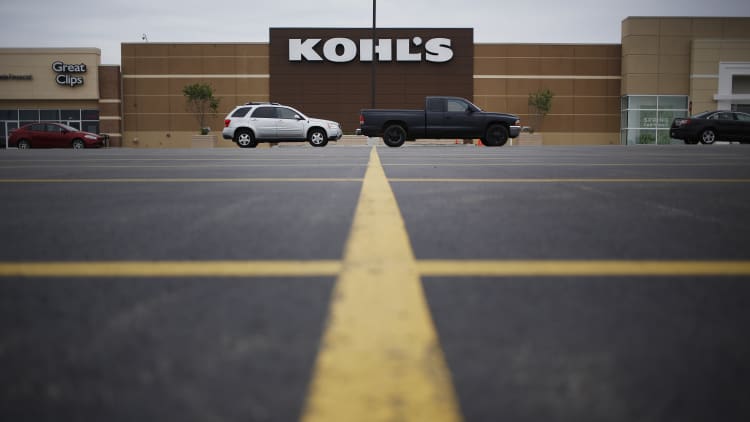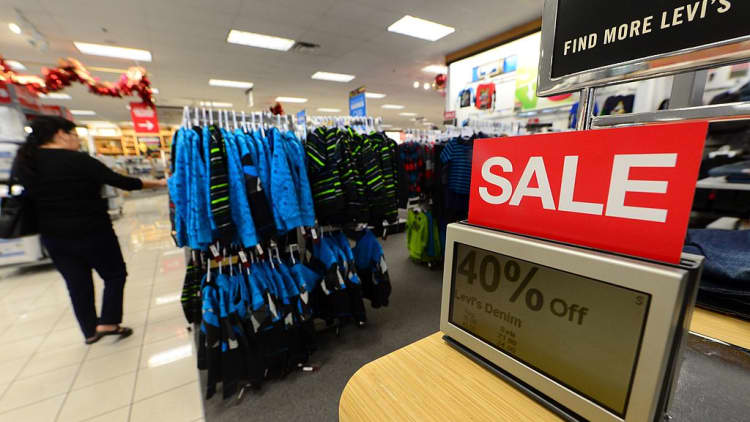
After closing 19 stores in 2016, Kohl's executives said on Thursday that the chain will continue whittling its square footage over time. But that doesn't necessarily mean it will have fewer locations.
Instead, as competitor Macy's moves forward with its plan to shutter 100 locations, Kohl's CEO Kevin Mansell is looking for opportunities to move his company out of some of its cavernous stores and into smaller shops.
On a call with investors following the company's fiscal fourth-quarter earnings report, Mansell said trading in some of Kohl's larger stores will help the chain maintain its presence in different markets and operate more profitably.
Retailers are typically hit with a double whammy when they close stores, as they lose both physical and digital sales. Online shoppers tend to make fewer purchases from a retailer that doesn't have a nearby store to handle returns. Indeed, Kohl's said it retained only about one-third of the sales from stores it closed in nearby locations. It kept about 90 percent of its online sales.
"There's great power in stores," Mansell said.
The chain operated 1,154 locations at the end of fiscal 2016, including nearly 200 small format stores. That translated into four net new stores when factoring in openings related to its small shops, Off/Aisle bargain concept and Fila outlets.
However, as more of the chain's sales shift to the web, Kohl's has been testing pint-size versions of its traditional locations. It's been experimenting with 55,000-square-foot locations for several years, and in 2016, it piloted a 35,000 version. A typical Kohl's store measures closer to 80,000 or 90,000 square feet.
"That now gives us a lot of confidence that we know how to operate those stores profitably," CFO Wes McDonald said.
Yet even as Kohl's remains committed to brick-and-mortar, it's struggling to bring shoppers into its stores. While customers spent more at Kohl's checkout counters throughout the holiday quarter, it completed 6 percent fewer transactions. Transactions are often used as a proxy for traffic.
The company has put in place a number of initiatives designed to get shoppers in its stores, including the addition of Under Armour in March. Kohl's estimates that label could boost its total comparable sales by 0.75 to 1 percentage point in fiscal year 2017.
Kohl's earned $1.44 per share in the fourth quarter, topping Wall Street's consensus estimate of $1.33 per share, according to Thomson Reuters. Its revenue fell just shy of expectations, coming in at $6.21 billion. Wall Street had been expecting the company to report $6.22 billion in sales.



